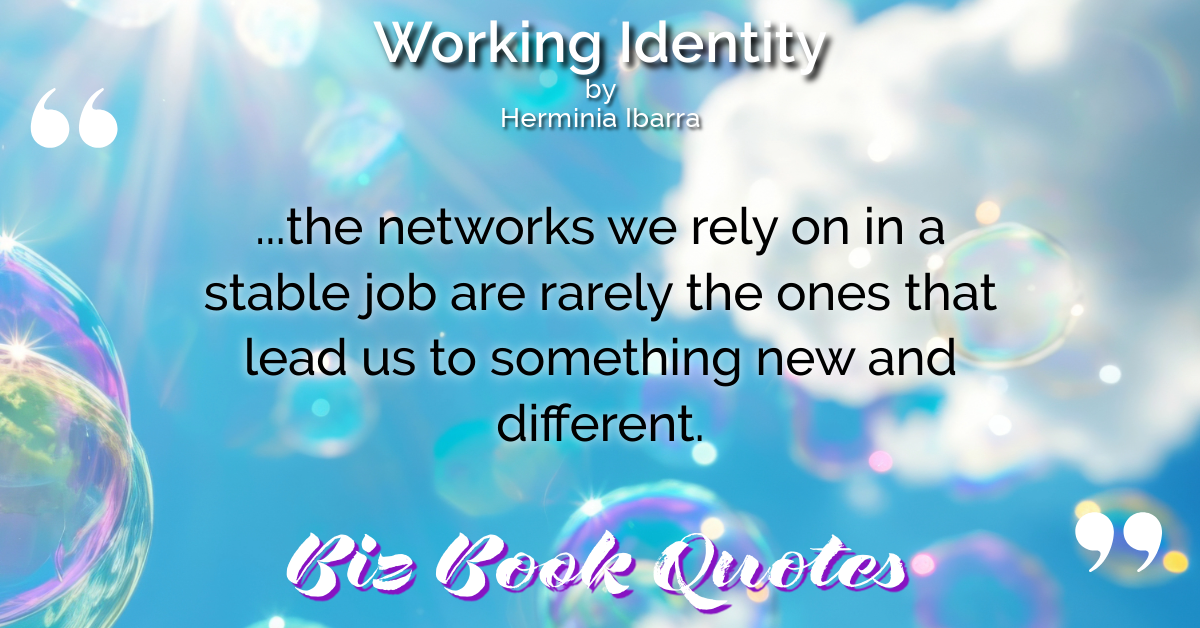 |
…the networks we rely on in a stable job are rarely the ones that lead us to something new and different.
|
0 |
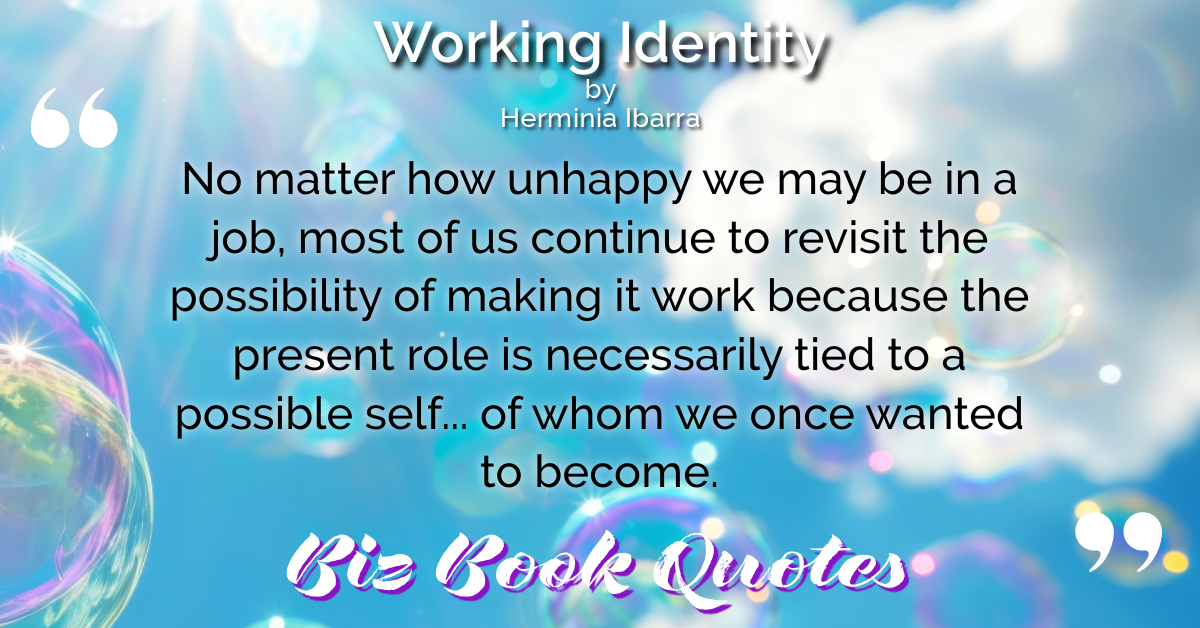 |
No matter how unhappy we may be in a job, most of us continue to revisit the possibility of making it work because the present role is necessarily tied to a possible self… of whom we once wanted to become.
|
055 |
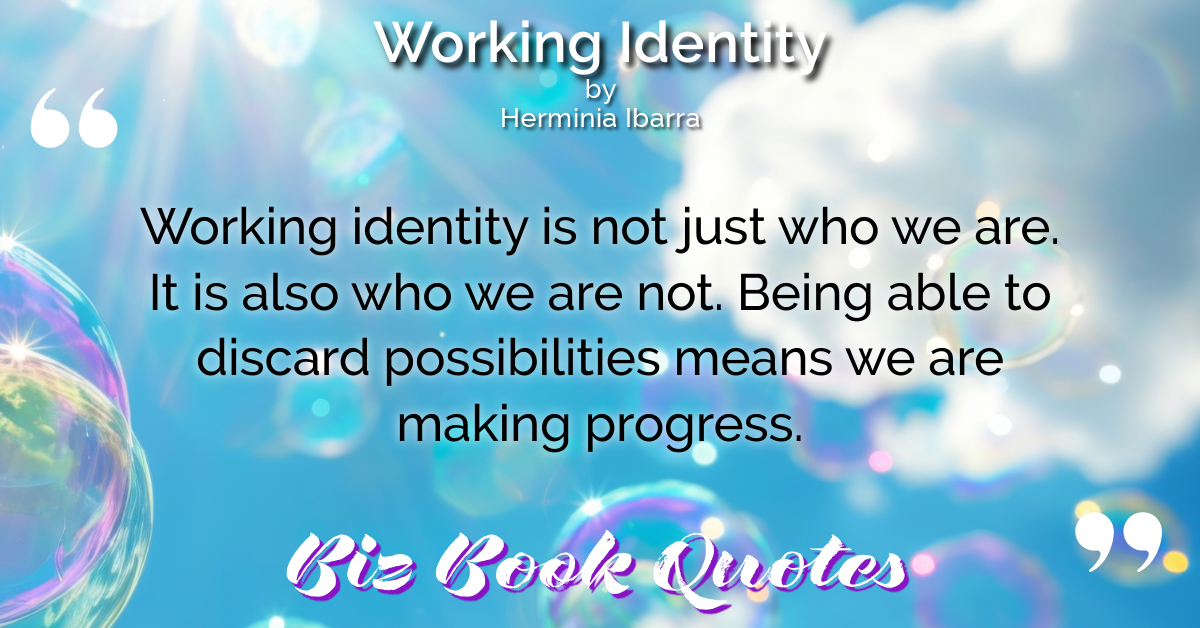 |
Working identity is not just who we are. It is also who we are not. Being able to discard possibilities means we are making progress.
|
062 |
 |
In career transitions, the basic assumptions that typically prove most resistant to change concern our emotional relationships with institutions, our benchmarks for success, and our preconceived notions about viable work arrangements.
|
082 |
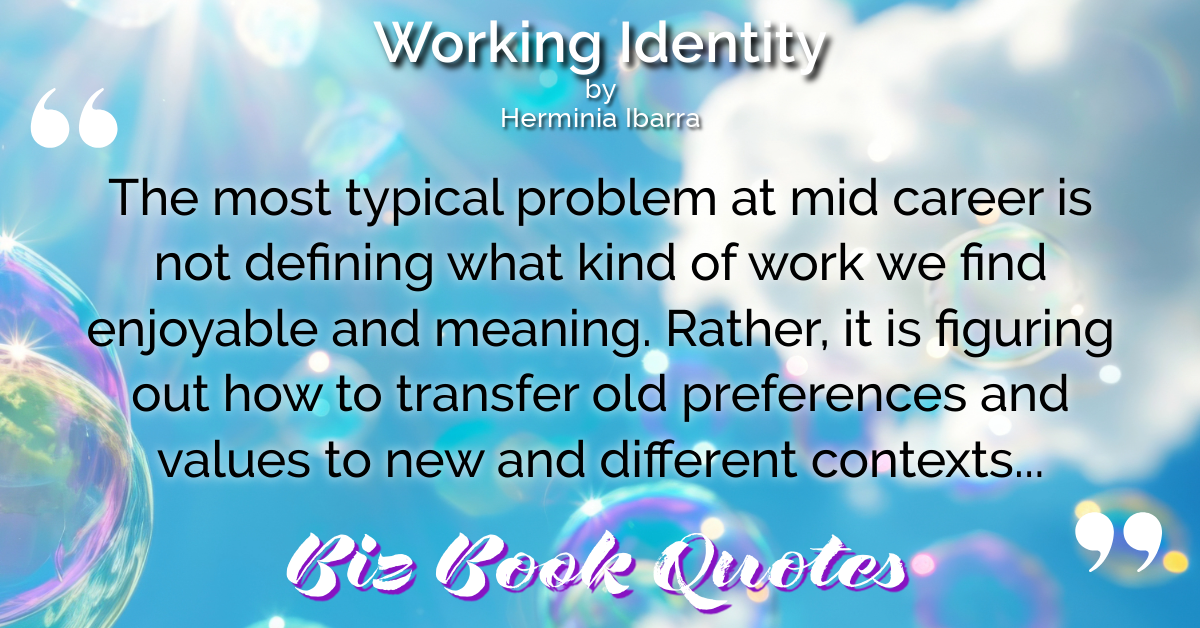 |
The most typical problem at mid career is not defining what kind of work we find enjoyable and meaning. Rather, it is figuring out how to transfer old preferences and values to new and different contexts…
|
163 |
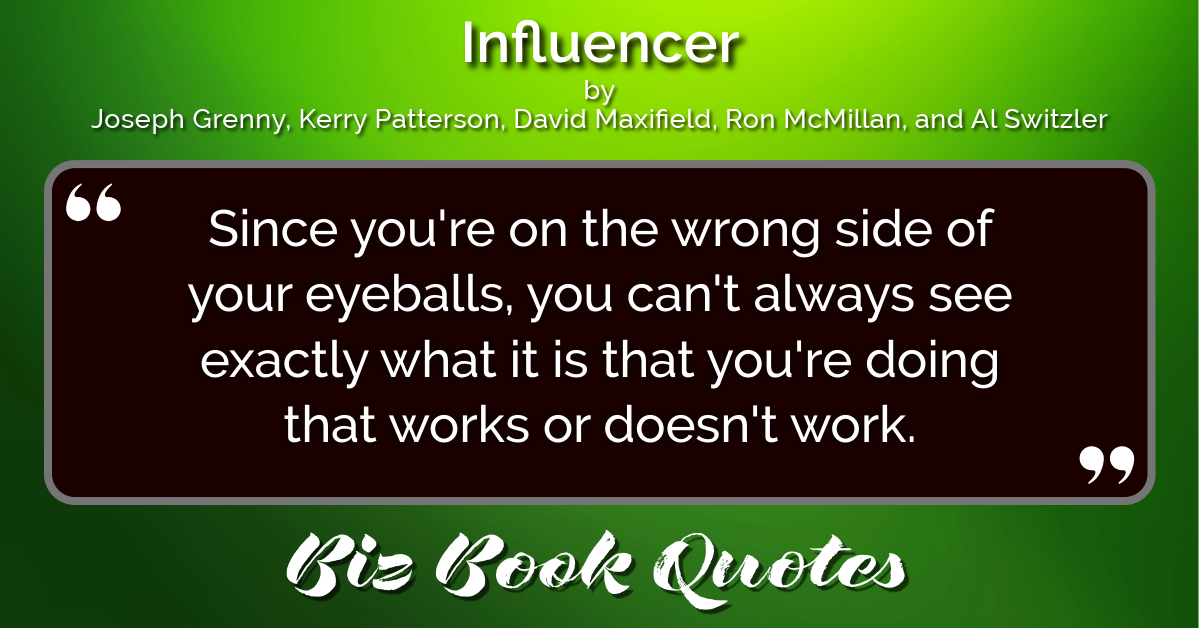 |
Since you’re on the wrong side of your eyeballs, you can’t always see exactly what it is that you’re doing that works or doesn’t work.
|
210 |
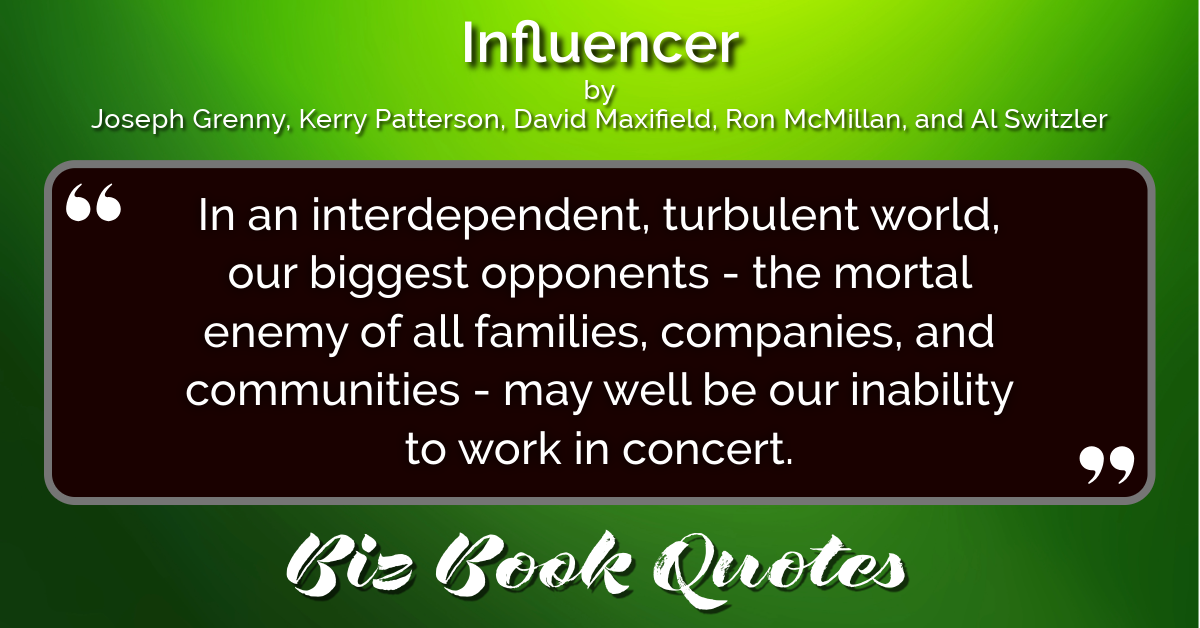 |
In an interdependent, turbulent world, our biggest opponents – the mortal enemy of all families, companies, and communities – may well be our inability to work in concert.
|
215 |
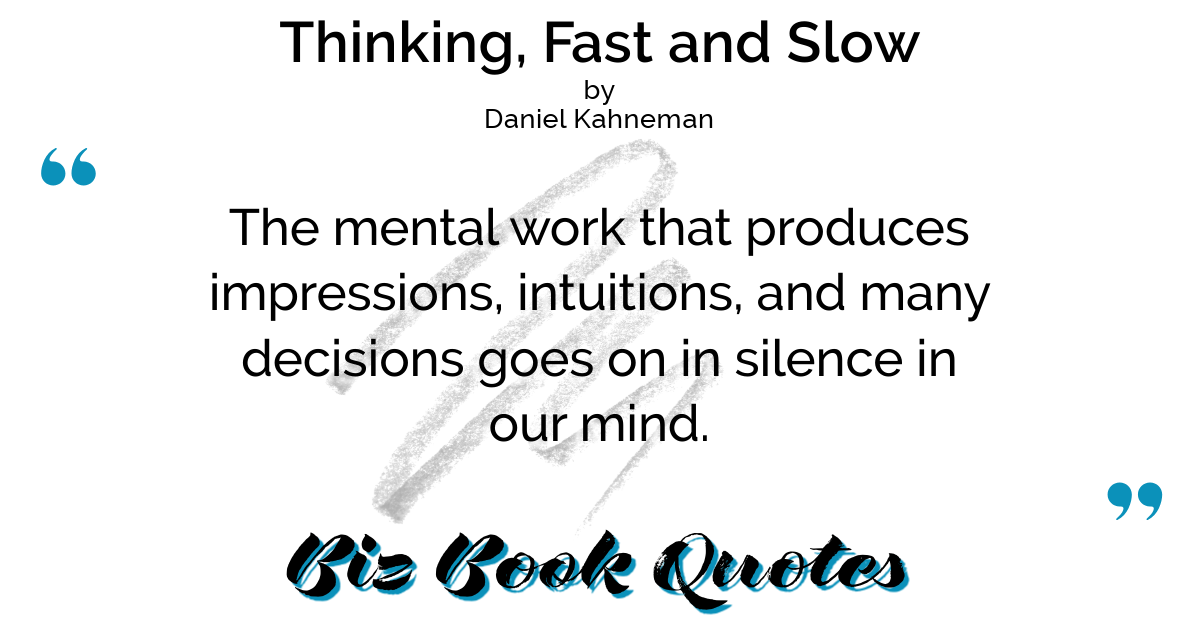 |
The mental work that produces impressions, intuitions, and many decisions goes on in silence in our mind.
|
004 |
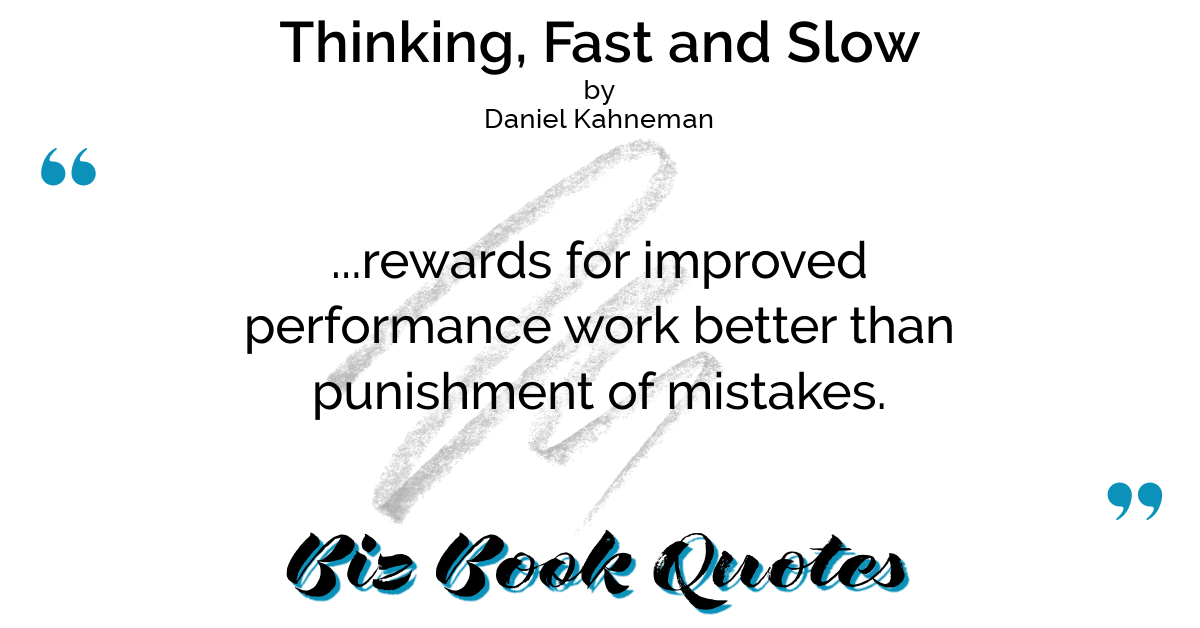 |
…rewards for improved performance work better than punishment of mistakes.
|
175 |
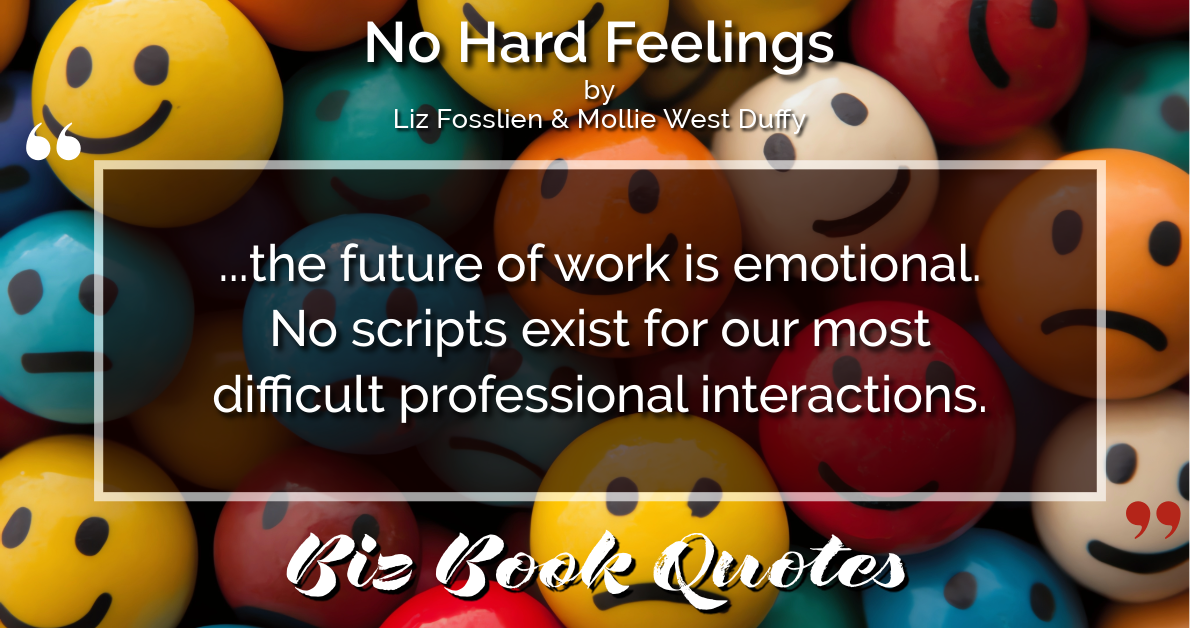 |
…the future of work is emotional. No scripts exist for our most difficult professional interactions.
|
007 |